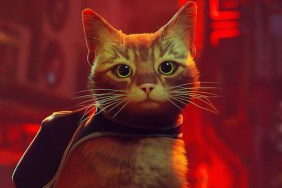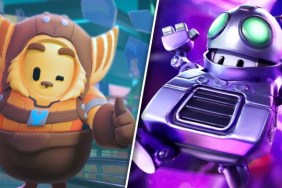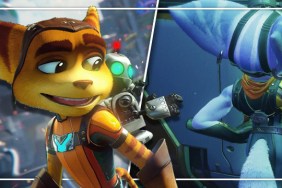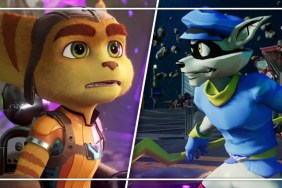Just the tool for the job.
Let’s say, for the sake of argument, that food critics, like game critics, had to review the opening of every single restaurant in their town. What would they say about the new McDonald’s opening off the freeway? The inoffensive wall art strays too far into kitsch. The condiment area is in disarray. The wait staff is incomprehensible. The food critic would look at everything but the food, because, let’s face it, you already know what it’s going to taste like.
[image1]At a certain point in a video game franchise’s life cycle, the prospect of reviewing the next installment hits a similar point of diminishing returns. This is starting to be the case with Ratchet and Clank Future: Tools of Destruction, the seventh iteration of the snarky platformer from Insomniac. The game is as good as it was previously, smoother and deeper in its PS3 format, but not a whole lot different in the matter of content.
Like earlier Ratchet and Clanks, Tools of Destruction creates a futuristic world of moving platforms and robotic enemies. Using outlandish weapons, like the “tornado launcher,” Ratchet annihilates piles of enemy robots and double-jumps his way through pitfall-like environments. Many of the old game mechanics, like swinging on electric cables and sliding on “grindrails,” return.
So does the wry humor that sways between the ludicrous parody—a rank-and-file evil robot pirate complaining about his 401k plan for example—and off-color innuendo—a play-by-play commentator noting that he hasn’t seen a “double team” since his last movie, called “Hero Sandwich.” The jokes are frequently groaners, but they are light and quick, and do more to set a playful tone than to actually induce laughter.
This time around, Rachet and Clank are up against an evil tyrant named Tachyon. Tachyon is hellbent on killing Ratchet because he is the last of his race of furry Lombax inventors. The duo go on a quest to discover Ratchet’s ethnic origins, and, of course, discover that the fate of the universe, and possibly more, is at stake.
[image2]The plot is not much more than a vehicle to get Ratchet and Clank scouring the universe. Each level, and there are several, takes place on a separate planet, ranging from the swampy prehistoric planet with evil robots to the lava-filled planet with evil robots. There’s a lot of variety, but not a whole lot that you haven’t seen before. Except maybe the robot pirates. Oh, probably those too.
Innovations in Tools of Destruction, however, capitalize on the PS3’s technology. The graphical detail is much better, especially in Ratchet’s furry ears and facial expression. Environments are crowded with motion, spaceships and prehistoric birds cluttering the skyline. There’s so much gratuitous graphical litter that sometimes it feels like Ratchet’s been dropped into a Fox News report.
There are also several mini-games and weapons that require the use of the six-axis tilt control. One mini-game requires you to roll a metallic board on a tilting circuit board to unlock certain doors. The tornado you shoot from your “tornado launcher” can be controlled by tilting the controller. And all the flying—from flapping your way through marker rings, to freefalling through electric grids, to guiding a mini-copter gadget through tight places—uses the tilt control.
[image3]There are many new weapons, but the best, the groovitron, is a disco ball that compels all the enemies, even the bosses, to perform their own unique dance moves. The idea is that as they dance, you can beat them to death, but in an unanticipated irony, watching the dancing is so much fun that you will frequently also be rooted to the spot, giggling at the robotic cabbage patch or the raise-da-roof goldfish.
However, the number of over-the-top weapons seems to have faded. Many of the guns are just futuristic versions of our basic Halliburton fare: guns, rocket launchers, grenades, flamethrowers. A new "gelinator" throws down springy jello, and a “plasma beast” weapon creates green monsters that fight for you, but the ratio between “real” weapons and clever ones is wider than I remember.
As in earlier versions, collecting tons of crap allows you to buy new weapons and upgrade them. The upgrade system is clear, using a flowchart to dictate the different customization paths each gun can take. Using weapons repeatedly also increases their effectiveness, and even the lowliest pistol can be upgraded into a wicked magma cannon.
[image4]Still, much of this won’t be new to the old Ratchet and Clank fans. For them, the experience is a little quicker (load times are shorter), and definitely prettier, but probably familiar in tone and gameplay. Those new to the series get a solid action platformer for the PS3, full of good fun, and aimed directly at the thirteen-year-old in all of us.
The only glaring criticism I have for the game is its lack of multiplayer, online or otherwise. Whereas the last console Rachet and Clank, “Deadlocked,” introduced a promising multiplayer component for the PS2, the PS3 version beats a hasty retreat. It doesn’t affect the final product much, but for those still unsold on the PS3’s online network, it raises an eyebrow.
A furry eyebrow, though. And though Tools of Destruction is more of the same, it’s still warm and comfortable, with the added snuggle of high definition.
-
Same Ratchet and Clank antics
-
Better Graphics
-
Lots of Mini-games
-
Groovitron
-
No multiplayer
-
No major gameplay innovations











